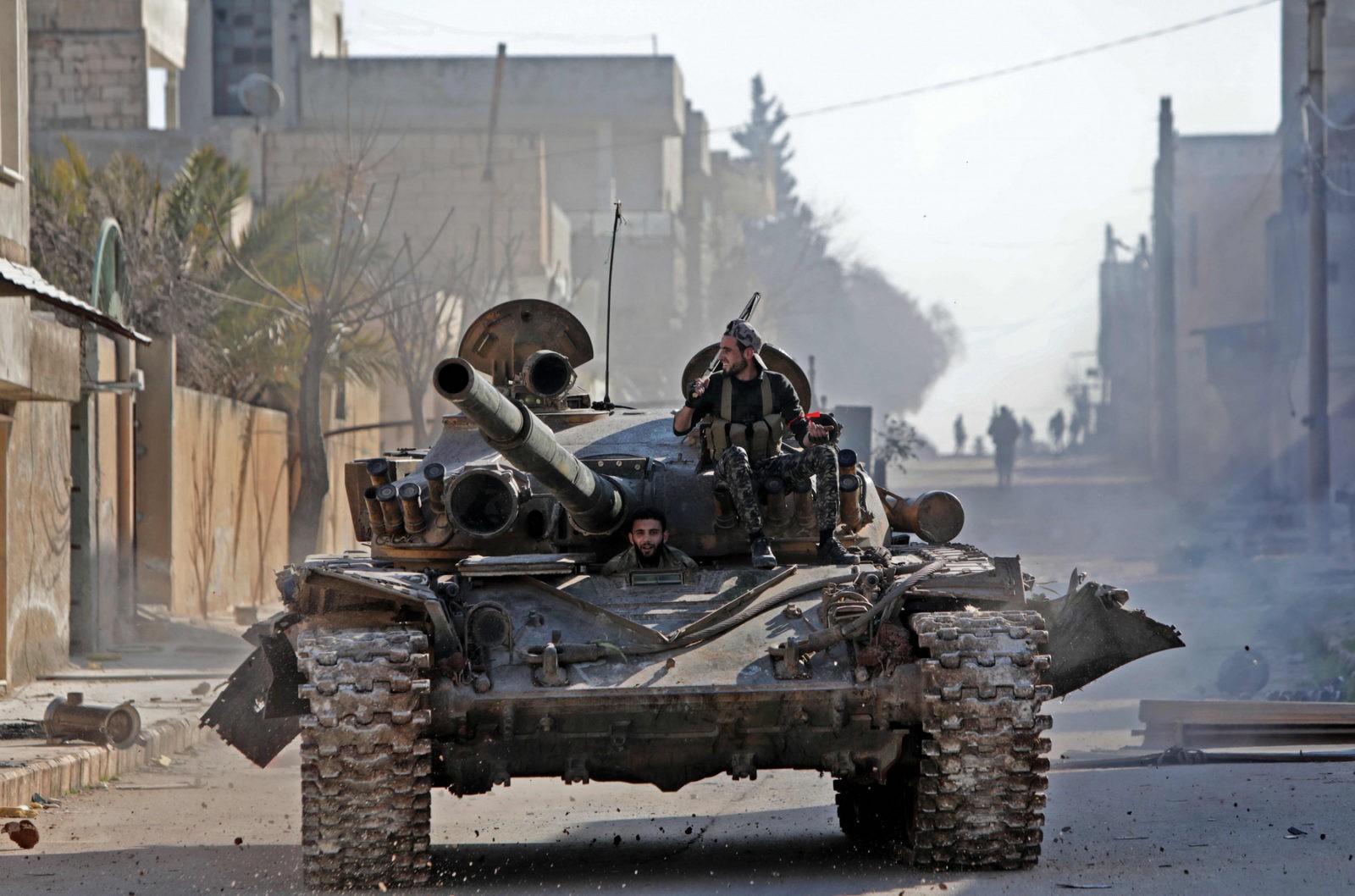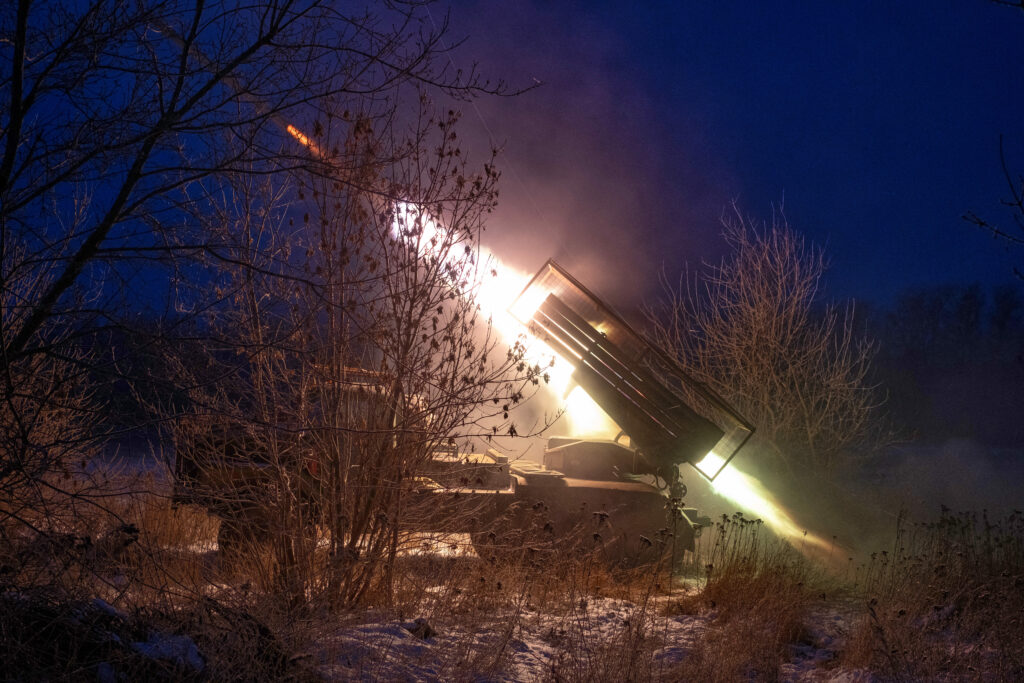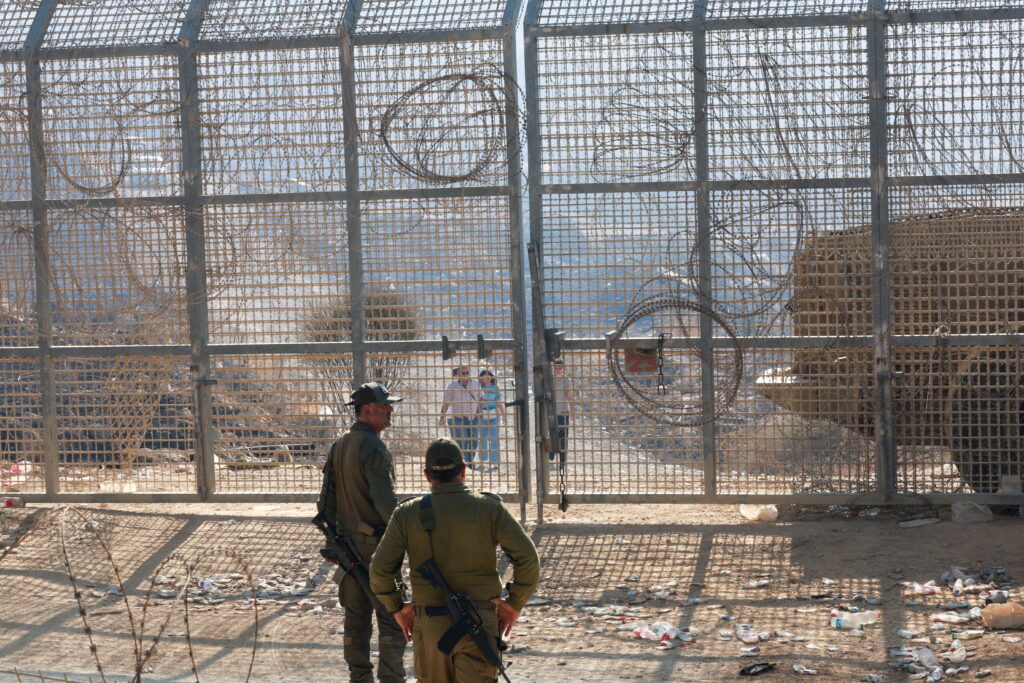The deteriorating situation in the north Syrian town of Idlib in early 2020 has caused fresh tensions between Ankara and Moscow. Confrontation here does not follow the logic of Syria-related agreements pushed by Russia and Turkey in recent years. Russian and Turkish stances on Syria had aligned after the failed 2018 Syrian peace conference in Sochi. The pair had agreed on a demilitarised zone in Idlib in September 2018; both signed the Sochi memorandum on northeast Syria in October 2019. Vladimir Putin’s visits to Damascus and Istanbul in early 2020 seem to have consolidated this. Russia-Turkey negotiations on January 8 were followed by a joint statement by Putin and his Turkish counterpart Recep Erdogan: ‘We reaffirm the importance of the full implementation of the Memorandum of September 17, 2018 and the Memorandum of October 22, 2019′.
However, the situation has since taken a turn for the worse. And this has cast doubt on the actual implementation of Russia-Turkey agreements. It also brings into question the ability to influence other actors involved in the conflict. Equally, it has elicited another outpouring of Russia criticism by the Turkish public, and of Turkey by the Russian public.
Moreover, the Idlib context has exposed a fragmentation of Russia’s Middle East policies. Little wonder that observers from outside Russia struggle to understand Russia’s decision-making in the region. Erdogan’s recent statement, for instance, speaks volumes about his trust in Moscow: ‘Who shall I believe? 3−4 days ago I spoke to Putin. It was a great conversation. The next day serious accusations against Turkey appeared [in Russia]. Nothing of the kind came up in the conversation with Putin. What is wrong with you? There is one thing at the top and another at the bottom.’ Erdogan alludes to the high degree of disintegration among Russian institutions tasked with decision-making in the Middle East.
Ministerial rivalries
Rivalry between the foreign and defence ministries produced a watershed in Russia’s Middle East policies at the onset of its presence in Syria. Russia’s Foreign Ministry saw Syria and Libya as levers for influencing Western countries. This mattered in the post-2014 deterioration of relations with the West and Moscow’s growing economic activity in the Middle East. A snapshot of the ministry’s logic: the Kremlin is not capable of resolving either the Libyan or Syrian crisis; but it has enough capacity to either facilitate or hinder a compromise between warring parties.
The more real Moscow’s involvement in the Syrian conflict became, the more active the defence ministry’s role in Russia’s Middle East policies. Dividends from the protracted military conflict improved significantly. The ministry welcomed the increased defence spending needed to fulfil military tasks in the Middle East. Although officially, the Foreign Ministry and Defence Ministry work hand in hand on Syria, it transpired in 2017 that the siloviki (from military forces and secret services) overshadowed the diplomats. Among other things, this happened because the legendary Syrian reconciliation was a subterfuge for the policy of breaking up the opposition (via so-called de-escalation zones), weakening it and reconciling it with the Syrian regime through agreements with external policy-makers.
Russia’s Ministry of Defence is the main lobbyist in Russia for Khalifa Haftar, the commander of the so-called Libyan National Army (LNA). Still, Sergei Shoigu does not have enough leverage to make his approach dominant in the Kremlin. He is forced to put up with the Foreign Ministry’s rationale and that of special presidential envoy Mikhail Bogdanov, and show obedience. It was precisely Shoigu who took the initiative and invited ‘Putin’s curator’ Yevgeny Prigozhin, associated with PMC Wagner, to a meeting with Haftar in Moscow. This was reportedly done to convince Putin to support Haftar.
Another show of Russian policies’ fragmentation in the region is the involvement of more Kremlin associates who are not official representatives of foreign policy institutions or intelligence staff. Their role is to act as intermediaries. They establish dialogue, even with official regimes of Islamic states. As a result, the Chechen administration headed by Ramzan Kadyrov and an extended network of his proteges has become a sort of a think tank of track-two diplomacy.
For example, Lev Dengov (who is close to Delimkhanov and Kadyrov), officially named ‘the head of the contact group on Libya at the Ministry of Foreign Affairs of the Russian Federation’, was entrusted with relevant tasks. This goes alongside Kadyrov’s ‘shuttle diplomacy’ with Middle Eastern heads of state, especially leaders of the Gulf countries. Kadyrov even has his own special envoy in the Middle East, senator Ziyad Sabsabi, who supervised the Syrian repatriation programme, among others. Shamil Beno is yet another example; he represented Kadyrov’s interests in the Gulf countries. The gravitas and persuasiveness of the head of Chechnya in his negotiations with Arab leaders was bolstered by the activity of Chechen battalions and mercenaries in Syria and Libya.
Another important element of Russia’s Middle East policies is the involvement of private military companies (PMCs). These companies have made their presence felt in Syria, Libya and even sub-Saharan Africa. From our point of view, although PMC Wagner’s activity is directly supervised by the Defence Ministry, it diverges from the ministry’s policy to a certain extent. Although cooperation between PMCs and the military is quite close in Syria, it is limited in Libya and boils down to planning operations and logistical support offered by the ministry. Despite this cooperation, active recruitment of mercenaries is not a reflection of Moscow’s official policy in Libya. The activities of some Russian businessmen develop by their own inertia. They are linked to different policy-makers, i.e. not only Haftar but also actors in Tripoli and Tobruk (e.g. head of the temporary cabinet Abdullah Abdulrahman at-Thani).
Such a broad array of views and approaches exhibited by the Russian official and informal establishment in the Middle East is in many ways a reflection of Vladimir Putin’s domestic policy of divide and rule. In other words, the Russian leader’s power rests not so much on a rigid authoritarian power vertical. Rather, he relies on maintaining the disunity of various elite groups, with skilful balancing of their interests. A similar strategy in the Middle East engenders competition between think tanks; none of the forces can take full strides on the regional agenda.
Putin benefits most from this strategy. He has the final say on all key issues. So the Middle East vector of Russian foreign policy has been clearly personified. Thus, the logic of Russia’s activities in the Middle East has no beneficiary other than Putin himself.
Personal agreements
The president’s choice from all the available options has been the least predictable step in the process. This is illustrated by the agreements on Idlib and northeast Syria concluded within the last two years. They were a result of personal negotiations between Erdogan and Putin (and preceded by a series of fruitless encounters at the ministerial and special envoy level). The situation has remained unchanged. We are witnessing an endless chain of bilateral meetings of Russian and Turkish diplomats and military leaders. Still, no solution to the Idlib problem has seen the light of day. However, the logic of events suggests the desired compromise might come as soon as both leaders agree on a face-to-face meeting.
At the same time, the Kremlin’s fragmented approach to the Middle East can be interpreted as a most cautious strategy. That makes sense when it comes to unpredictable countries and regions fraught with conflict. The Russian leadership is unlikely to feel confident in the Middle East; it wants to minimise the risks of possible erroneous decisions. In other words, don’t put all your eggs in one basket. The Kremlin prefers this tactic. For instance, it would be reckless to bet the farm on only political or only military means of resolving a Syrian conflict. The same goes for Moscow’s choice to support any given military or political force in Libya. It is too risky to throw alll weight behind just the LNA, the National Unity Government, or the Misrata Brigade. Moscow will not fail through an attempt to build a dense network of relations between official and unofficial groups. Even though this approach is not in line with the principle of winner-take-all.
In other words, diversification of Middle East policies is indicative of the Kremlin’s caution, stemming from a lack of confidence. However, due to the lack of alternating power in Russia, there are fewer and fewer opportunities to rethink and significantly change the Kremlin’s policies and decisions. As a result, reactionary decisions are consolidated by later ones that are equally or more reactionary. In the short-term, the vulnerability of the adopted strategy might not be critical. In the long run, though, the Russian authorities will be hostages of their own decisions. Diffusion of responsibility for Middle East policies partially solves this problem. But it only helps overcome the symptoms, rather than dealing with their cause.










